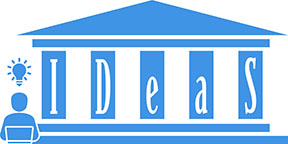
End of Year Roundup: Research Findings
 Dr. Ignacio Arana
Dr. Ignacio Arana
There is a growing scholarly consensus that overreaching heads of government are subverting democracies across the globe. Using a novel database, I conduct discrete-time duration models that demonstrate that risk-taking and assertive Latin American presidents are more likely to try to increase their constitutional powers.
Arana Araya, Ignacio. 2021. “The Quest for Uncontested Power: Presidents’ Personalities and Democratic Erosion in Latin America, 1945-2012.” Forthcoming in Political Psychology.
We explore the relationship between weak institutions and gender diversification by analyzing the consequences of judicial reshuffles in Latin America. Our theory predicts that institutional disruptions will facilitate the appointment of women justices, but only when left parties control the nomination process. We test this argument using difference‐in‐differences and dynamic panel models for 18 Latin American countries between 1961 and 2014. The analysis offers support for our hypothesis, but gains in gender diversification are modest in size and hard to sustain over time.
Arana Araya, Ignacio, Melanie Hughes, and Aníbal Pérez-Liñán. 2020. “Judicial Reshuffles and Women Justices in Latin America.” American Journal of Political Science. https://doi.org/10.1111/ajps.12543.
I use data from an expert survey that captured psychometric traits of presidents who governed the Western Hemisphere in 1945–2012 to reassess an influential study about Latin American presidents. The results show that adding openness to experience leads to a deeper understanding of presidential approval. I conclude by arguing that measuring the personality traits of all sorts of leaders is necessary to modernize the study of elites.
Arana Araya, Ignacio. 2020. “The Personalities of Presidents as Independent Variables.” Political Psychology https://doi.org/10.1111/pops.12722.
Little attention has been paid to the interpersonal dimension in interbranch relations, despite being characterized by intensive interactions among political elites. We use data from two unique databases to examine legislative trust in presidents from 18 countries for the 1994–2014 period. We find that factors that capture the institutional and political environment as well as variables that measure psychological and non-psychological characteristics of the leaders are relevant to understanding the trust that legislators have in heads of government.
Arana Araya, Ignacio, and Carolina Guerrero Valencia. 2020. “Executive-Legislative Relations: When do Legislators trust the President?”. In Manuel Alcántara, Mercedes García Montero, and Cristina Rivas Pérez, eds., Politics and Political Elites in Latin America. Springer.
 Dr. Jason Hong
Dr. Jason Hong
We have developed a short Security Attitudes survey to assess how people feel about cybersecurity. We have two versions, SA-6 and SA-13, with 6 and 13 questions respectively. These surveys can help evaluate the effectiveness of different interventions, as well as to assess the security posture of an organization. You can try the survey here: https://socialcybersecurity.org/SA6quiz.html
Cori Faklaris, Laura Dabbish and Jason I. Hong. 2019. A Self-Report Measure of End-User Security Attitudes (SA-6). In Proceedings of the Fifteenth Symposium on Usable Privacy and Security (SOUPS 2019). USENIX Association, Berkeley, CA, USA. Available at: https://www.usenix.org/system/files/soups2019-faklaris.pdf
 Knight Fellow Cori Faklaris
Knight Fellow Cori Faklaris
We developed and validated a new psychometric measure for usability and cyberpsychology research that we call SA-13, the 13-item Security Attitude inventory. In data from a Census-weighted Qualtrics panel (N=209), higher scores on SA-13 and on the SA-Engagement and SA-Attentiveness subscales were associated with higher scores for security behavior intention and for self-reported recent security behaviors. SA-13 and its subscales (particularly the above and SA-Resistance) are useful for researchers and for security awareness teams who need a lightweight survey measure of user security attitudes.
* Article in submission to Computers & Security, official journal of Technical Committee 11 (computer security) of the International Federation for Information Processing. Elsevier.
Cori Faklaris, Laura Dabbish, and Jason I. Hong. 2021. “Do They Accept or Resist Cybersecurity Measures? Development and Validation of the 13-Item Security Attitude Inventory (SA-13).”
Account sharing is a common, if officially unsanctioned, practice among workgroups, but so far understudied in higher education. In a 2020 interview study on a U.S. campus, fully 17 of 23 participants (74%) reported sharing accounts officially via an Enterprise Random Password Manager (ERPM), via the unofficial but secure method of an individual password manager, or unofficially via ad-hoc methods such as plaintext messages stored in a group chat. Many shared accounts were for accessing third-party cloud services (frequently, Amazon or Google) or social media (Instagram and Twitter), but no one reported sharing university email linked to their personal identity, which may speak to the success of university efforts to educate users about the need to keep this credential confidential.
* Article in submission to the Proceedings of the ACM: Human-Computer Interaction, Issue CSCW3, (October 2021). Association of Computing Machinery, New York, NY, USA.
Serena Wang, Cori Faklaris, Junchao Lin, Laura Dabbish, and Jason I. Hong. 2021. “ ‘It’s Problematic but I’m not Concerned’: University Perspectives on Account Sharing.”
My dissertation research focuses on understanding how attitudes and social influences act on end users in the process of cybersecurity behavior adoption (or non-adoption). I have identified five expectancy-value models and four stage models of behavior change that are relevant to cybersecurity behavior adoption. Using this prior work and newly collected survey data and interview data, I am crafting a model specific to cybersecurity that identifies the relevant (1) attitudes and (2) social influences acting at each step of security awareness and adoption, along with associated (3) tech characteristics.
* Short talk in submission to the 2021 Workshop on Security Information Workers, co-located with the Symposium on Usable Privacy and Security (SOUPS 2021), Aug. 8-10, 2021.
* Thesis proposal to be scheduled before the end of 2021.
Cori Faklaris. 2021. “Components of a Stage Model of Cybersecurity Behavior Adoption.”
 Knight Fellow Christine Sowa Lepird
Knight Fellow Christine Sowa Lepird
My research has led to the creation of a system to analyze the spread of misinformation news links on Facebook and quickly determine the probability that a newly established domain is functioning as a low credibility news site.
 Knight Fellow Aman Tyagi
Knight Fellow Aman Tyagi
Key Research findings of my thesis and references:
- Polarized and hostile communities exist within climate change discussion on Social Media Media platforms should take measures to show messages to educate users with different beliefs [1,2,3].
- Policymakers and news media should use more active frames to communicate climate messaging. Using more ``Moral", ``Quality of life", ``External reputation or foreign policy" frames to describe climate change is more likely to make climate change an urgent issue in public perception [3].
- Conspiracy theories are a real threat to effective climate change messaging. Climate change messaging should not indiscriminate all conspiracy theories but tackle the popular ones and alienate the unpopular ones [3,4].
[1] Aman Tyagi, Matthew Babcock, Kathleen M Carley, and Douglas C Sicker. 2020. Polarizing tweets on climate change. InInternational Conference on Social Computing, Behavioral-Cultural Modeling and Prediction and Behavior Representation in Modeling and Simulation. Springer.
[2]Aman Tyagi, Joshua Uyheng, and Kathleen M Carley. 2020. Affective polarizationin online climate change discourse on Twitter. InInternational Conference on Advances in Social Network Analysis and Mining. IEEE/ACM, Virtual Conference
[3] Aman Tyagi. 2021. Challenges in Climate Change Communicationon Social Media.Ph.D. Dissertation. Carnegie Mellon University. https://search.proquest.com/dissertations-theses/challenges-climate-change-communication-on-social/docview/2504529667/se-2?accountid=9902
[4] Aman Tyagi, and Kathleen M Carley, 2021, Climate Change Conspiracy Theories on Social Media. In International Conference on Social Computing, Behavioral-Cultural Modeling and Prediction and Behavior Representation in Modeling and Simulation Working paper.
